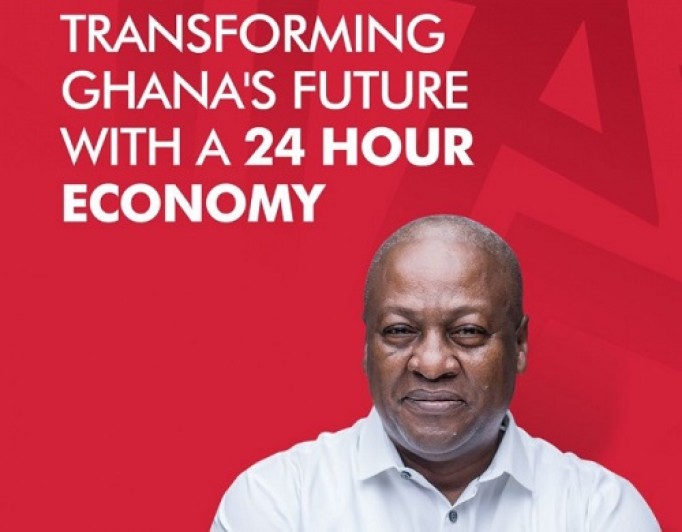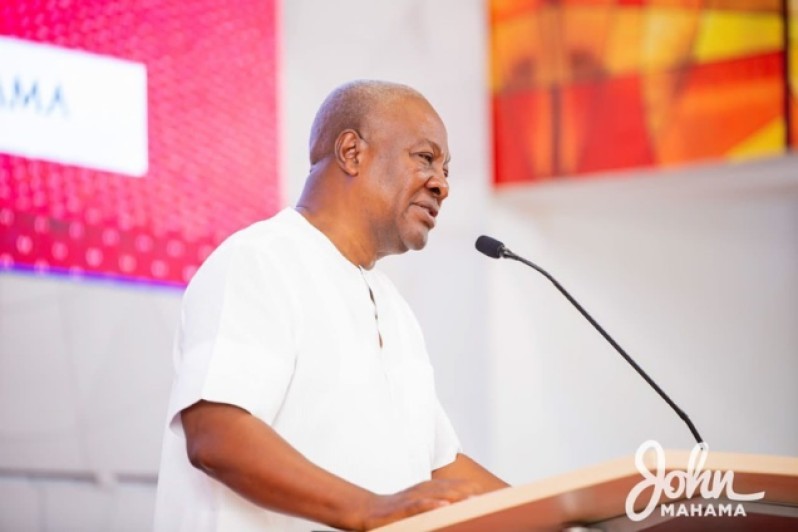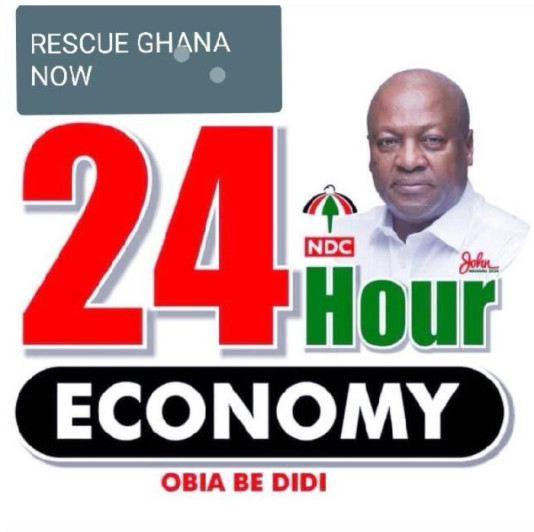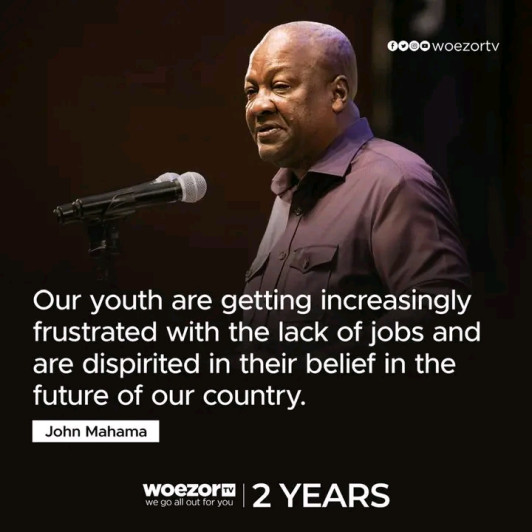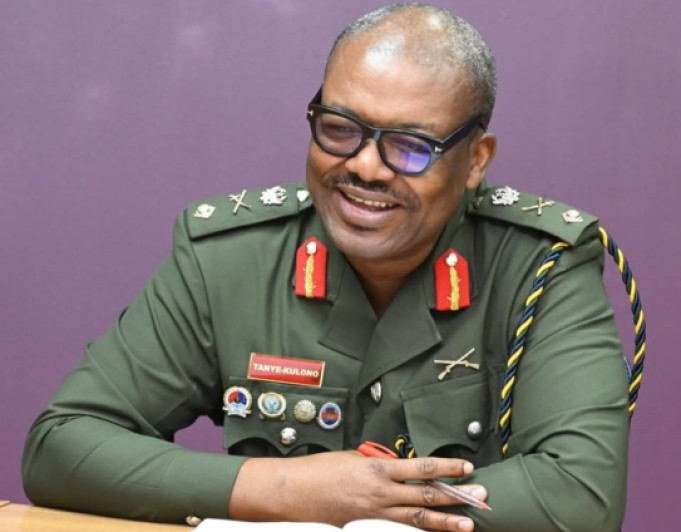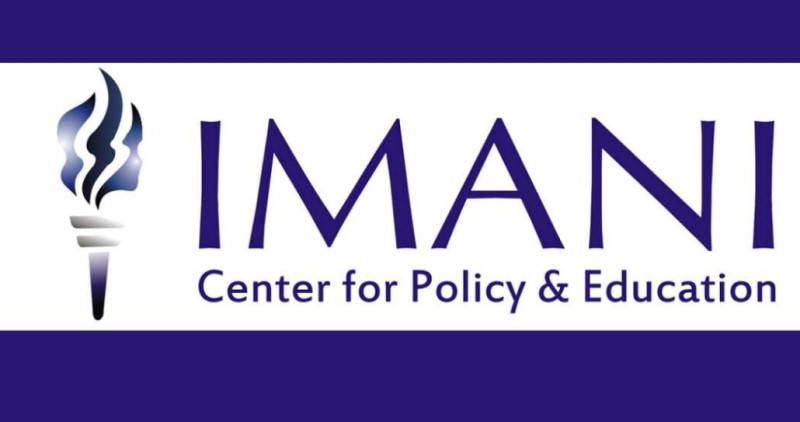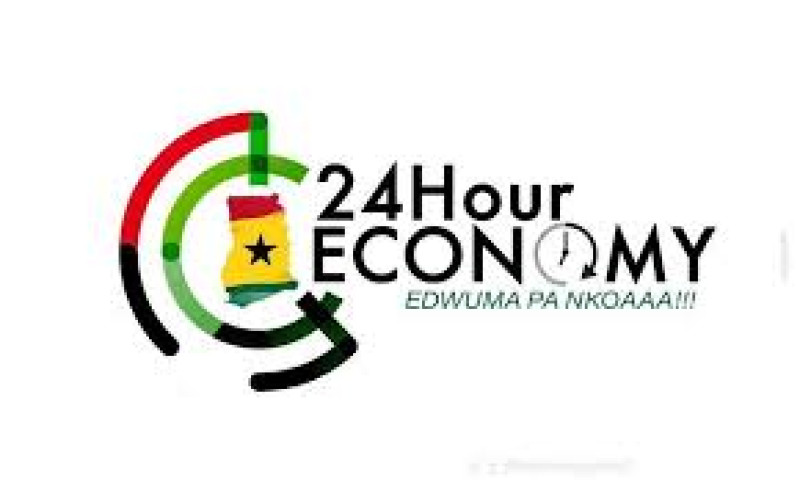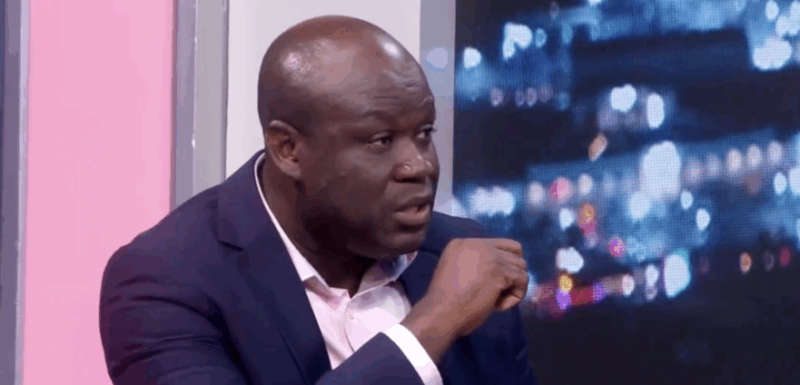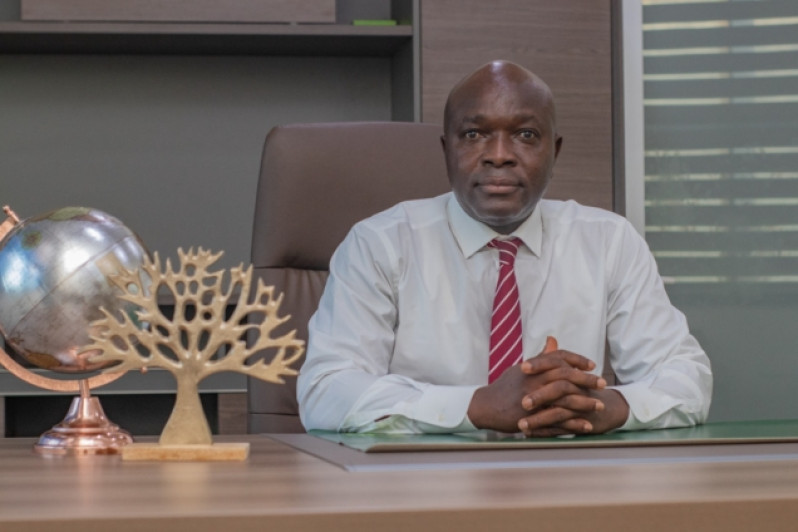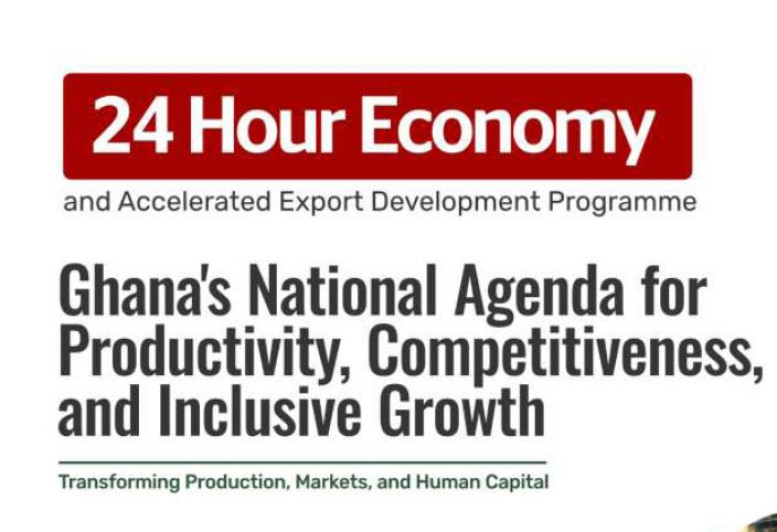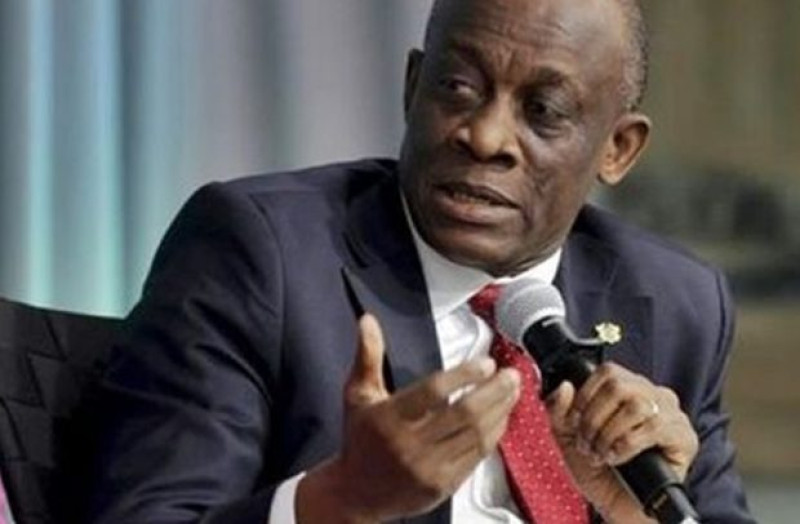
24-Hour Economy: A sectoral & tranformative viewpoint by Seth Tekper
The discussions started by former President John D. Mahama about his intention to implement a 24-hour economy has sparked scepticism, with some questioning its legitimacy while also claiming to be implementing it already. It is important to look beyond the doubts and examine the immediate past record of the transformative possibilities that have been squandered already within the decade. According to Mr. Seth Tekper, the former Finance Minister has added his voice to the debate. According to him;
Global experiences show that a 24-hour economy emerges from a transformative agenda that is based on sector-driven strategic plans and investments that change the way of life and work of the citizens of a country. While acknowledging that some conventional activities may show signs of a 24-hour economy, this article contends that a 24-hour economy thrives on qualitative and transformational programs.
Hence, the article cites some tangible Mahama-era initiatives to support the prospective policy and from which it can draw useful practical lessons. In contrast, the attitude of the Government towards almost all of these examples undermine any claims to ongoing 24-hour economy progammes.
Further, the era’s infrastructure investment drives were from the “home-grown” policy and its related “smart borrowing” initiatives that have since been undermined and become virtually non-existent.
- Some Programs that could propel the concept
Former President Mahama’s bold assertion of a 24-hour economy was grounded in a vision for the future structural programs that are based on past experiences. To assess the feasibility of this vision, a practical and conceptual examination of his and the NDC’s tenure is necessary. Hence, it is imperative to consider some strategic assets inherited by the current government, which could have been instrumental in showcasing the 24-hour economy in action.
- Transportation: Unlocking Economic Gateways
Critical projects such as KIA Terminal 3 and the port expansions in Tema and Takoradi hold the potential to visibly manifest the 24-hour economy. The delayed strategic railway link between the Tema harbour and Akosombo, promises enhanced commercial access to the Volta Lake, thereby fostering more efficient and cheaper transportation, marketing, and agricultural practices.
The stalled third bridge across the Volta Lake at Volivo, near Asutsuare,remains a key component of the Eastern Corridor transportation project. The financial blow from the delay is the failure to promptly acknowledge the renewed access to Japanese grant that was stopped on account of HIPC. Is it fortuitous to revisit the bridge because we no longer have access to most long-term external commercial loans? Note that, all these project represent untapped potential for the nocturnal economic activities that occurs in most emerging and advanced countries.
- Energy and Power: Sustaining Night-time Growth
The dismantling of the petroleum/gas-to-power structure within months of political transition posed challenges, yet opportunities exist for reinvigoration. The NDC started to leverage such strategic financial instruments as the ESLA flows which were labelled a “nuisance” tax but not scrapped, to refinance and settle arrears owed to State-Owned Enterprises (SOEs), notably Volta River Authority.
Despite the collateralization of the ESLA flows by the present Government, the arrears owed to Independent Power Producers (IPPs) was not paid, as envisaged in a Mahama era AfriExim-led term-sheet the Government inherited. Consequently, together with the collapse of the World Bank, MCC and IFC failed power schemes, it has failed to fortify the energy sector.
The ESLA innovation would not only have benefited consumers but also contributed to the robust foundation required for a power-backed 24-hour “day-cum-night economy.”
- Health Sector: A Crucial Pillar of Nocturnal Well-being
While the government asserts that hospitals and healthcare workers operate on a 24-hour agenda, it failed to fully continue most NDC projects in the sector in order to expand this economy with projects such as the University of Ghana Hospital and 2nd Military Hospital in Ashanti Region. These highlight the need for continued development and investment to optimise the provision of healthcare facilities and align health infrastructure with the objectives envisioned by former President Mahama within the 24-hour economy.
2.4 Information and Communication Technology (ICT) Sector: The Digital Backbone
Investing in digital infrastructure, including high-speed internet and e-commerce platforms, is vital for seamless connectivity and efficient 24/7 business operations. The Eastern Corridor Fibre Optic project serves as the country’s ICT backbone, ensuring uninterrupted data connectivity for all Ghanaians, supporting government functions and remote work.
This Rawling-cum-Kuffuor era projects demonstrate the clear benefits of continuity in government shown by the Mills-Mahama governments—and, as the basis for some ongoing digital projects. The Accra Digital Centre fosters a dynamic digital economy, facilitating innovation and entrepreneurship around the clock. Additionally, the National Data Centre provides secure data storage, a critical element for continuous economic activities. Together, these NDC initiatives are indispensable for a successful and thriving 24-hour business ecosystem.
2.5 Education: Nurturing Continuous Learning
The NDC’s educational projects encompass initiatives that harmoniously align educational investments with national objectives, propel comprehensive educational reform, and elevate basic and secondary education. These are all aimed at cultivating a skilled workforce adept for continuous economic activities. The Education Plan (2010 – 2020) strategically aligned investments with national policies, forging a dynamic education system indispensable for a 24-hour economy’s versatile workforce.
Further, the PNDC’s Ghana Vision 2020 Plan, from 1996-2013, served as the basis for substantial educational reform, with a focus on perpetual enhancement and adaptability to meet the requisites of a 24-hour economy. Lastly, the Secondary Education Improvement Project was designed to amplify enrolment, diminish class sizes, and augment teacher-student engagement, meticulously preparing a workforce for sustained operations within a 24-hour economy.
- Financing: An Important Complement
A major hindrance to the transformation agenda envisaged in the 24-hour economy initiative is Ghana’s current fiscal situations, notably the non-access to major external and the domestic financial markets. It is another instance where the country was making progress under the Mahama-era “home-grown” and “smart-borrowing” policies. Again, their current state is another example of decimated initiatives under the government.
- Conclusion
A meticulous evaluation of the NDC foundational track record reveals both visionary achievements and opportunities for improvement in the pursuit of a 24-hour economy. While acknowledging challenges, it is crucial to avoid categorical dismissals and recognize the potential for success within the broader economic context. By strategically utilizing recurrent and capital budgets as well as viable loan or debt programs, a future government led by President Mahama can propel sector successes and overall progress, ultimately establishing a compelling narrative for the sustainable implementation of a 24-hour economy.
The writer is a Former Minister for Finance, Seth Tekper
Disclaimer: "The views expressed on this site are those of the contributors or columnists, and do not necessarily reflect 24houreconomy.org’s position. 24houreconomy.org will not be responsible or liable for any inaccurate or incorrect statements in the contributions or columns here."
Share On Social Media
Other Stories
24-Hour economy policy a major improvement on past fragmented initiatives – IMANI Africa
1D1F programme cancelled, replaced with 24-Hour Economy – Minister
24-Hour Economy without cheaper power and credit is a mirage – GNCCI Boss
24-Hour Economy policy: Game-changer that needs flawless execution
The Fundamental Challenges to be addressed by the 24-Hour Economic Policy by the Government
Farmers should not worry about machines – Mahama on Agricultural Reforms
Akufo-Addo’s actions were so loud, Ghanaians couldn’t hear Bawumia’s policies- NPP MP
Mahama reiterates commitment to maintain opened door policy towards Minority parties
‘A difficult journey ahead’ – President-elect Mahama vows to rescue Ghana from the economic woes
24-HOUR ECONOMY
Economy


